Future of Food
Summit 2022
Thursday 1 & Friday 2 December 2022
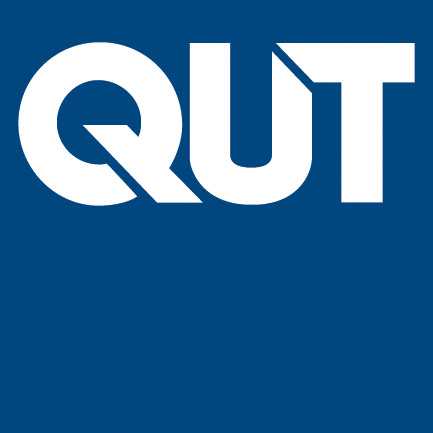
The Future of Food Summit 2022 will drive discussion on issues central to the mission of the Future Food Systems Cooperative Research Centre: to develop smart, sustainable, resilient food systems that capitalise on Australia’s unique strengths, give our agrifood products a competitive edge in key target markets, and shore up food security.
The conference will be a mix of plenary and panel discussion sessions featuring national and international keynote speakers from government, industry and academia, with a two-hour student research showcase running from 3pm on Day 1.
Ancillary events include a Gala Dinner at Queensland Museum on the evening of Day 1, with Indigenous chef, restaurateur and MasterChef contestant Mindy Woods as MC; and a showcase of QUT facilities and capabilities at the university’s Garden Point campus on the afternoon of Day 2.
The Summit will be held on Thursday 1 & Friday 2 December 2022 in Brisbane, Queensland. The conference venue is level 5 of E Block, on QUT’s Kelvin Grove campus. Short optional tours of agrifood-related QUT facilities have been scheduled for Friday afternoon. For further information on speakers, sessions and sponsorships, contact us at info@futurefoodsystems.com.au
A broad-ranging Summit agenda is designed to explore potential solutions to key challenges facing Australia’s food and agribusiness sectors on the road to 2050 – from mitigating supply-chain uncertainty, to finding smarter ways to enable more crops to be grown in climate-controlled facilities, to developing planet-friendly ways to produce more and better food using fewer resources – by commercialising native ingredients; upcycling food and agricultural waste; or developing brand-new products that cater to growing demand from ‘conscious consumers’ for healthy, sustainable, equitably produced foods, beverages and health supplements.
Day 1 |
|
Time |
Item and speakers |
9:00 |
Registration / Coffee |
9:15 |
Welcome to Country
|
9:30 |
The power of partnershipThree tiers of partnership: Government, industry and academia – and how collaboration can help deliver smart solutions with real-world impact.
|
10:00 |
Re-envisioning the Future of FoodHow can we help shape smart, sustainable, healthy food systems that meet tomorrow’s needs, delivering nutritious food to a growing global population and capitalising on the opportunities presented by the next generation of ‘conscious’ consumers?
|
11:00 |
Morning tea / Break |
11.20 |
The role of protected cropping in sustainable food systemsModern protected cropping (PC) systems can help commercial growers produce high volumes of fresh fruit and veg in controlled-environment conditions, close to distribution hubs and consumers. However, Australia’s PC growers face challenges including high labour and energy costs and dependence on Northern Hemisphere technology. There’s a need for cost-effective solutions tailored to local conditions – solutions that collaborative research, under the Future Food Systems CRC and elsewhere, is helping to deliver.
|
12:20 |
Working smarter, not harder: Innovative solutions for indoor cropping (Panel discussion)How can we best work together to develop solutions tailored for Australia’s protected cropping sector that mitigate the negative impacts of climate change and extreme weather events; protect against pests and biosecurity threats; alleviate labour shortages; reduce input costs; and improve crop quality and yields? This session will explore various solutions to automate crop tending and monitoring, boost crop output and reduce the use of chemicals, water and energy in Australian indoor cropping facilities.
|
1:00 |
Lunch/networking |
2:00 |
Feeding growing global demand for targeted F&B productsWhat foods, beverages and nutraceuticals will tomorrow’s consumers want and pay a premium for? And how can we best cater to and capitalise on this demand? This session will canvas various solutions – from using chemical ‘fingerprints’ to prove the provenance, nutritional and ‘free-from’ status of premium F&B products, to upcycling food and agricultural waste; developing plant-based, fermented and cell-based ‘alt-protein’ products; and working with traditional custodians to commercialise indigenous foods and medicinal crops.
|
3:20 |
Afternoon tea / Networking |
3:40 |
Research Showcase: The future faces of foodA showcase of Future Food Systems CRC PhD students’ projects, which encompass everything from urban planning to developing low-cost IoT sensor systems for protected cropping facilities to testing weight loss supplements.
|
6:30 |
Pre-dinner drinks & canapés (Whale Mall, Queensland Museum) |
7:00 |
Gala Dinner (Queensland Museum)The 2022 Future of Food Summit Gala Dinner will take place in the magnificent foyer of Queensland Museum in Brisbane CBD. MC for the evening is two-time MasterChef contestant, Indigenous chef-restaurateur and sustainable food champion Mindy Woods.
|
Day 2 |
|
Time |
Item and speakers |
9:00 |
Registration / Coffee |
9:15 |
Risk and resilience in food supply chainsWhat are the potential disruptors in the food supply chain? And how can we best manage and mitigate these risks, collaborating to deliver solutions that ensure smarter, safer, more sustainable food supply chains?
|
10:15 |
Morning tea / Networking |
10:35 |
Streamlining supply chains (Panel discussion)What can we do to help streamline and secure Australia’s food supply chains? This session will explore solutions such as developing ‘smart’ digital tools and technology that help move food safely and speedily from farm to fork; mapping land use to guide co-location of infrastructure and agrifood entities, and help manage risks posed by extreme weather and biosecurity incursions; and fostering the development of strategically sited ‘agrifood hubs’ that encourage collaboration and enable economies of scale.
|
11:00 |
Research impact in real-world applicationsIn successful research collaborations, experts in the field solve real-world problems for industry and government partners. But what are the keys to making such collaborations work? And what does success look like? Some real-world impact stories from the Future Food Systems CRC consortium.
|
12:00 |
Future of Food – a new way thinking (Closing keynote + panel session)What will make the food systems of tomorrow truly sustainable – friendly to livestock, the environment, consumers, traditional custodians and producers’ bottom lines? What sort of products will tomorrow’s consumers want? And how can targeted research collaborations help bring about this transformation?
|
1:00 |
Lunch / Networking |
2:00 |
QUT Capabilities / Facility tour
|
4:30 |
Close |
*Subject to change
Summit speakers (in order of appearance)

Uncle Cheg (Gregory Egert), Elder-in-Residence, Queensland University of Technology
QUT’s Elder-in-Residence Gregory Egert, also known as Uncle Cheg, works closely with the Oodgeroo Unit in supporting and creating a culturally safe and inclusive environment for Aboriginal and Torres Strait Islander prospective and current students and staff. Uncle Cheg is a Traditional owner; he provides an important link to the countries upon which QUT resides and a knowledge base for QUT staff and students.

Bob Mullins, Board Director, Future Food Systems CRC
Raised on a farm, Bob Mullins has forged an international career working with agribusinesses that create value through plant-based technology, particularly in high-value horticulture. Early roles as a plant breeder and sugarcane R&D program manager led to a role in a plant biotech and robotics start-up. Mullins then joined Syngenta Seeds, contributing to extended periods of profitable growth and commercialisation of new technologies across APAC and the Americas. He returned to Australia to lead the crop protection portfolio for horticulture. Currently, Mullins is a non-executive Director of Future Food Systems Ltd and Chair of the CRC’s Research & Commercialisation Committee. A graduate of the Australian Institute of Company Directors, with degrees in Agricultural Science, Technology Management and Plant Breeding, Mullins loves the challenge of leveraging R&D to deliver practical, profitable, sustained change in agriculture.

Prof. Sagadevan Mundree, Head of the School of Biological and Environmental Science at Queensland University of Technology
Sagadevan Mundree, formerly Director of the Centre for Agriculture and the Bioeconomy (CAB) at Queensland University of Technology, now heads up QUT’s School Biological and Environmental Sciences. Prior to joining QUT, Mundree was a Senior Executive in the Queensland Department of Primary Industries and Fisheries (QPIF), where he led the team responsible for QPIF’s Investments in research, development and extension across primary industries state-wide.

Mark Furner MP, Minister for Agricultural Industry Development and Fisheries and Minister for Rural Communities
The Hon. Mark Furner is the current Queensland Member for Ferny Grove, Minister for Agricultural Industry Development and Fisheries, and Minister for Rural Communities. Previously, he served as Minister for Local Government and Minister for Aboriginal and Torres Strait Islander Partnerships.

Prof. Cordelia Selomulya, Associate Dean, Faculty of Engineering, UNSW and Research & Commercialisation Director, Future Food Systems CRC
Cordelia Selomulya is a Professor at the School of Chemical Engineering at UNSW Sydney and the Research & Commercialisation Director of Future Food Systems Ltd. At UNSW, she leads a research group with an internationally recognised reputation in drying technology research, particularly for food and dairy applications. Prof. Selomulya was the recipient of an IChemE Global Award in the Food and Drink category, a BHERT (Business & Higher Education Round Table) Award for outstanding collaboration in R&D, and a Fonterra Award for outstanding contribution in the industrial application of a novel technology in the field of bioprocessing. She is a Fellow of the Australian Academy of Technology and Engineering (A and a Fellow of the IChemE.

Derek Willie (Barada/Kabalbara tribes), Barralong Group PTY LTD., Australian and Global Indigenous Consultant, Queensland University of Technology
A Kabalbara/Barada tribesman from the Bowen Basin area of Central Queensland, Derek Willie has held various roles in the private and public sectors, including in land and Native Title management, Indigenous procurement, project management, and industry facilitation and development at state, national and global levels. Willie has been a project officer, a business owner, a consultant, and a Chairman and Board Director of mining and beef enterprises. Willie is the Australian and Global Indigenous Consultant for QUT.

Bruce Hardy, Founder / President, Myera Group (Canada)
Bruce Hardy is the founder and President of Indigenous-led enterprise Myera Group, a biotech company based in Winnipeg, Canada that brings together leading-edge software and sensor technology and biotech solutions to solve traditional agricultural problems. Part Cree Indian, Hardy has found innovative ways to commercialise native rice to benefit Indigenous communities across the central Canadian province of Manitoba – such as producing native rice and fish simultaneously in low-cost, eco-friendly aquaponics facilities.

Dist. Prof. David Tissue, Director, National Vegetable Protected Cropping Centre at Western Sydney University
Distinguished Professor David Tissue is the Scientific Research Director for the National Vegetable Protected Cropping Centre (NVPCC) and Discipline Leader for Agriculture and Food Science at WSU. He has a long history of working alongside agricultural industries in the United States and Australia.

Dr Anthony Kachenko, GM, Production & Sustainability R&D, Hort Innovation
Dr Anthony Kachenko is the new leader of Hort Innovation’s Research & Development team, `enabling world-class R&D projects and programs. His team at Hort Innovation includes Extension, Data and Insights, and Industry Strategic Partnership, which works collaboratively with industry to set investment priorities. Dr Kachenko joined Hort Innovation in 2014 as Head of Research & Development, becoming GM of Data & Extension in 2019 and of Stakeholder Experience in 2021. Previously, he spent seven years at Greenlife Industry Australia (then Nursery & Garden Industry Australia) in various policy and management roles. Dr Kachenko holds a PhD in Agricultural Science, a Masters in Agribusiness, an Honours Degree in Horticultural Science, and a Diploma of Quality Auditing. He is a member and graduate of the Australian Institute of Company Directors and is a Chairman and Professional Member of the Australasia-Pacific Extension Network.

Craig Shephard, Senior Researcher, AARSC (University of New England)
Craig Shephard is a Senior Researcher within the Applied Agricultural Remote Sensing Centre (AARSC) at the University of New England in Armidale, New South Wales. He has more than two decades’ experience in mapping landscape attributes – in particular, land cover and land use.

Sam Turner, Executive Officer, Protected Cropping Australia
Sam Turner’s diverse background in R&D and investment management, food and beverage, strategic planning, exports and sustainable agriculture makes him an expert in agribusiness and trade. Along with his role as Executive Officer for national industry body Protected Cropping Australia Ltd, Turner is International Trade Manager at AUSVEG. Previous roles he has held include National Coordinator of AUSVEG’s VegNET, R&D Manager, Trade at Hort Innovation; Logistics Coordinator/Compliance officer for Otway Livestock Exports; and Production Agronomist for South Pacific Seeds.

Dr Chris Lehnert, Chief Investigator, QUT Centre for Robotics
A Senior Lecturer in Robotics and Automation and Chief Investigator at the QUT Robotics Centre, Dr Chris Lehnert specialises in solving commercial automation challenges, developing novel solutions for an array of real-world applications.

Dr Ruey-Leng Loo, Senior Researcher, Australian National Phenome Centre (ANPC)
Ruey Leng Loo is a senior researcher at the world-leading Australian National Phenome Centre, based at Murdoch University in Perth. A Western Australia Premier’s Early to Mid-Career Fellow, she has particular expertise in epidemiological studies and in data analytics for metabolic phenotyping. Loo’s research delivers new knowledge of dietary impacts on human metabolism and health/disease, and provides a translational bridge to the food science industry.

Prof. Gary Frost, Imperial College London
Gary Frost is head of the Section for Nutrition Research at Imperial College London, where he leads the Imperial Centre for Translational Nutrition and Food Research. Frost has been a qualified dietitian since 1982, gaining his PhD in Nutrition while working at London’s Hammersmith Hospital. Prior to being appointed Professor of Nutrition and Dietetics at Imperial College in 2008, he held the same position at the University of Surrey.

Dr John Ashton, Strategic Research Manager, Sanitarium
Dr John Ashton BSc (Hons) PhD MSc CChem FRACI FAIFST is Strategic Research Manager for the Sanitarium Health Food Company and serves as an Adjunct Professor in the Food Chemistry & Biophysics Group at RMIT University. He has authored 50 peer reviewed research papers, six book chapters and 15 books.

Prof. Roman Buckow, Chief Technology Officer, All G Foods
Roman Buckow is the Chief Technology Officer of All G Foods, an Australian start-up that is leading technological innovations for the creation of next generation dairy and meat products. He is also a Professor of Food Engineering at the University of Sydney, Australia. Previously, Buckow worked as a scientist and research manager at the CSIRO, Australia’s National Research Agency where he advanced the science and commercialisation of sustainable processing solutions for quality and safety, and health attributes of meat and dairy. Buckow holds a MSc and PhD in Food and Bioprocess Engineering from the Berlin University of Technology. He has authored > 100 science articles and book chapters and has been recognised with several awards for his achievements.

Dr Thomas Vanhercke, Future Protein Mission – Novel Production Systems lead; Sr. Scientist, CSIRO
Dr Thomas Vanhercke is harnessing the awesome power of metabolic engineering, protein engineering and synthetic biology to optimise the production of bespoke metabolites in both crop and microorganisms, with a particular interest in proteins and lipids. Dr Vanherke’s work focused on the engineering of enzymes that are involved in plant and yeast lipid metabolism using rational protein design and directed evolution. More recently, he has undertaken extensive work on combinatorial metabolic engineering of vegetative plant parts (leaf, stem, root…) to accumulate high levels of valuable plant oils that are normally stored only in certain seeds. These ‘fat plants’ offer the potential of delivering game-changing oil yields that potentially outperform current oil crops several-fold. Currently, Dr Vanherke is extending synthetic biology principles into the plant kingdom to lift plant metabolic engineering and forward/reverse genetics to a high throughput level.

Assoc. Prof. Jolieke van der Pols, Program Leader of the Food Innovation Program at the Centre for Agriculture and the Bioeconomy, Queensland University of Technology
Associate Professor Jolieke van der Pols graduated from Wageningen University in The Netherlands with a MSc in Human Nutrition in 1993. During her studies and subsequent work she carried out research in West-Africa (République du Bénin), at the National Public Health Institute of The Netherlands, in Egypt (WHO East Mediterranean Regional Office), London (London School of Hygiene & Tropical Medicine), and Cambridge (MRC Dunn Nutrition Unit/Human Nutrition Research). In the year 2000, she obtained her PhD from The University of Cambridge, after which she moved to Brisbane to work at the Queensland Institute of Medical Research and later The University of Queensland. Jolieke has worked at the School of Exercise and Nutrition Sciences QUT since early 2017. Her main area of research expertise is in the field of nutritional epidemiology. Her research has been funded by the World Cancer Research Fund, Cancer Council Queensland, European Commission, among other sources–she is currently chief investigator in a large NHMRC-funded trial of vitamin D in Australia.

Prof. Brian Sindel, University of New England (UNE) (Chair)
An agricultural scientist and weed specialist, Brian Sindel has extensive research and research management experience from The University of Sydney, CSIRO and University of New England, Armidale. His research roles include participation in more than 25 projects across the horticulture, grains, grazing and cotton industries, and in natural environments. For the past decade, Prof. Sindel has been Professor and Theme Leader – Plant, Soil and Environment Systems in the School of Environmental and Rural Science at UNE.

Mindy Woods, Indigenous chef/restaurateur (Gala Dinner MC)
A proud Bundjalung woman, Mindy Woods jettisoned a career in physiotherapy to train as a chef, joining the Lotus Group as a Culinary Advisor and rising to the rank of CEO. A stint on MasterChef series 4, in which her Indigenous-flavoured dishes wowed the judges, catapulted Woods into the public arena. Following the show, Woods hosted a TV series on South-East Asian food traditions; was invited by the Australian Government to guest chef at the 2020 World Expo in Dubai; and honed her knowledge of eco-friendly food production studying sustainable horticulture. Earlier this year, she returned to the MasterChef kitchen for season 14: ‘Fans and Favourites’. Woods has a strong desire to connect Indigenous and non-Indigenous people with Aboriginal culture through food, and to encourage use of the world’s oldest living ingredients.

Prof. Douglas Baker, Queensland University of Technology
Douglas Baker is a professor in the School of Architecture and Built Environment at Queensland University of Technology in Brisbane. His areas of expertise include land-use planning, airport management, regional air transport and infrastructure logistics.

Prof. Bert van Wee, Delft University of Technology (Netherlands)
Bert van Wee is a professor in Transport Policy within the Faculty of Technology and Policy Management at the Netherlands’ Delft University of Technology. He is also Scientific Director of the TRAIL research school. Prof. van Wee’s main interest lies in long-term developments in transport, particularly in the areas of accessibility, land-use transport interaction, evaluation of large infrastructure projects, the environment, safety, policy analyses and ethics.

Dr Hermione Parsons, CEO, Australian Logistics Council
Hermione Parsons has more than 25 years’ executive management experience in public and private sector organisations, with responsibility for: port landside logistics, multimodal infrastructure, competition and regulatory reform, supply-chain strategy in food and agribusiness, and industry-government relations. Dr Parsons has led many projects relating to ‘whole of supply chain’ integration and complexity, across Australia and internationally.

Tony Crimmins, CEO, EcoMag
Tony Crimmins has an extensive background in business development and technology commercialisation, having listed 18 companies including BluGlass Limited, Jatenergy Limited and Abundant Produce Limited. He identifies breakthrough projects offering outstanding potential value to shareholders, develops their businesses and guides them through listing and business expansion. Crimmins previously worked as an environmental engineer and business development manager in Asia, as a general and project manager, and in the commercialisation of technology-based products and services. He is currently the Chief Executive Officer of Abundant Produce Limited (ASX: ABT).

Dr Alex Soeriyadi, Co-founder / CEO, LLEAF
Dr Alex Soeriyadi is a chemical engineer with a PhD from UNSW. His previous academic achievements include an Australian Museum Eureka Finalist accolade and a NHMRC fellowship. In LLEAF, Dr Soeriyadi has created a patent-pending material that engineers light (such as sunlight) to improve the crop growth cycle.

Dr Erin Rayment, Executive Director, Industry Engagement, Queensland University of Technology
Erin Rayment leads the team responsible for QUT’s industry engagement, strategic partnerships and commercialisation. Prior to joining QUT, she was responsible for strategic research development at University of Southern Queensland, commercialisation at qutbluebox and large-scale collaborative research projects for Griffith University. Rayment, who began her career in the UK as a biomedical scientist, is a graduate of the Australian Institute of Company Directors and a Registered Technology Transfer Professional. Keen to foster research with real-world outcomes, she works with government, industry and research organisations to promote long-term planning and investment in STEM.

Cheryl Stanilewicz, Director – Investment, Agribusiness & Food Centre of Excellence at Australian Trade and Investment Commission (Austrade)
Trade and international business is Cheryl Stanilewicz’s lifelong passion. Her primary focus is on adding value to Australian businesses. Having worked in the trade and international business facilitation environment for 25+ years, focused primarily on North East and South East Asia, she understands what it takes for both government and business to succeed and thrive in challenging and unfamiliar environments. Prior to her present role as Director of Austrade’s Investment, Agribusiness & Food Centre of Excellence, Stanilewicz held consular management and leadership roles, including as part of the Diamond Princess COVID Australian Embassy Tokyo response team that was recognised by the Australian Government via a 2021 APS Australia Day Award.
*Subject to change
Four fascinating guided tours, free to Summit delegates, showcase QUT’s world-class capabilities in robotics and automation, agrifood innovation, tropical crops, advanced analysis and Indigenous ingredients.
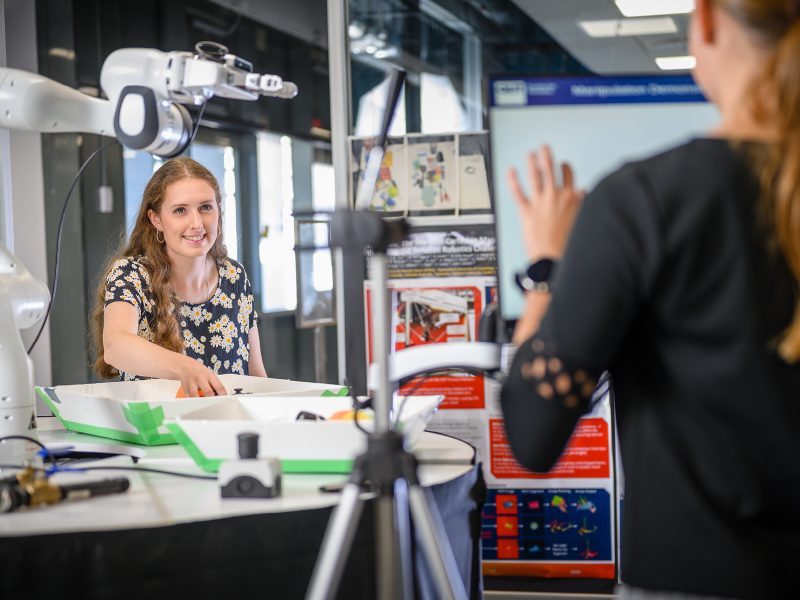
QUT Centre for Robotics Tour
Departure times: 2.30pm, 3pm, 3.30pm from QUT Gardens Point (coordinating shuttle bus transport provided from QUT Kelvin Grove)
Length of tour: 20 mins + 10 min Q&A
Group size: 12 people
Guide: Dr Chris Lehnert, Chief Investigator, QUT Centre for Robotics
Robots and other autonomous systems are changing the way we live, work and play. QUT’s research projects in these areas are focused on developing technology that can be used to improve our understanding and management of the world around us to benefit humanity.
The QUT Centre for Robotics builds on a decade of investment at QUT in robotic research and translation which has been funded by QUT, the Australian Research Council (ARC), Queensland Government, various cooperative research centres and industry.
The Centre is at the forefront of research and innovation in intelligent robotics, solving problems with a broad array of applications and translating laboratory research into constructive commercial and societal outcomes.
It is involved in educating, training and developing the next generation of talent to meet growing demand for robotics and automation across a multitude of fields, including agriculture, high-tech protected cropping, modern food manufacturing and distribution.
QUT Centre for Robotics also provides leadership in technological policy development. Its experts engage in ongoing discussion with industry and government about how best to address pressing current and future challenges, and contribute to spirited societal debate – including crucial conversations about the role of automation in future food production and delivery systems.
Find out more about QUT Centre for Robotics’ projects here.
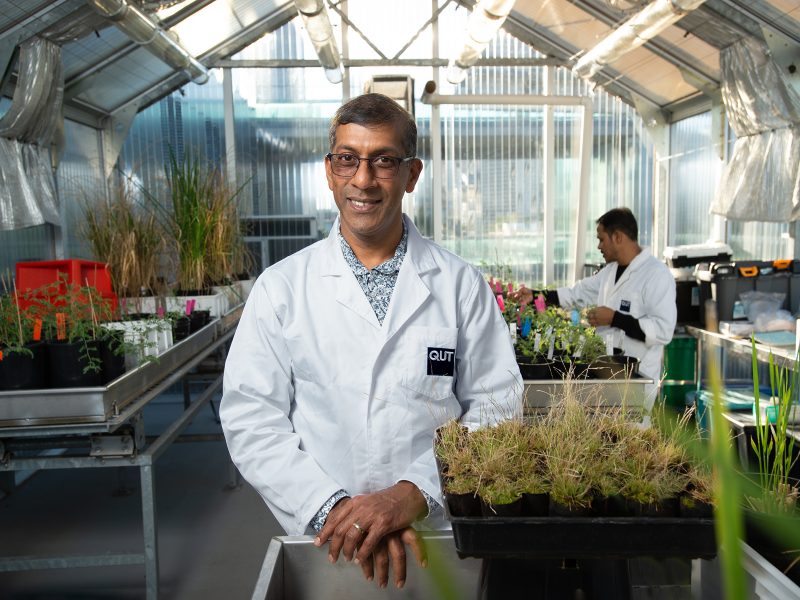
Centre for Agriculture and the Bioeconomy tour
Departure times: 2.30pm and 3.30pm
Meeting point: A Block, QUT Gardens Point campus (coordinating shuttle bus transport provided from QUT Kelvin Grove, with an escort to the meeting point)
Length of tour: 30 mins + 15 min Q&A (45 mins total)
Group size: 10 people
Guides: Rachel Self and Jo Blinco
QUT’s Centre for Agriculture and the Bioeconomy (CAB) brings together the university’s substantial expertise in agriculture and bioeconomy research to deliver science-backed solutions that help feed the world sustainably and develop cleaner, greener bioproducts.
CAB’s unique mix of expertise in plant biotechnology, process engineering, industrial chemistry and commercialisation enables an end-to-end R&D pipeline that runs from laboratory to real-world research outcomes.
The Centre specialises in tropical agriculture and the high-value biocommodities sector, delivering locally and globally relevant research and providing consulting solutions in biotechnology and biomass processing. It research foci include:
- tropical crop specialisations in bananas, sugarcane and tropical pulses;
- genetic manipulation for improving the nutritional status of food, and to enhance disease resistance and stress tolerance in tropical crops;
- developing advanced techniques for disease diagnosis and control; and
- manufacturing high-value ‘green chemicals’, biofuels and other bioproducts from agricultural waste.
The CAB tour will take in the Centre’s bioprocessing and fermentation laboratories and the Centre for Biorefining Research. Note that all participants are required to wear flat-soled, fully enclosed shoes on this tour.
Find out more about the Centre for Agriculture and the Bioeconomy here.
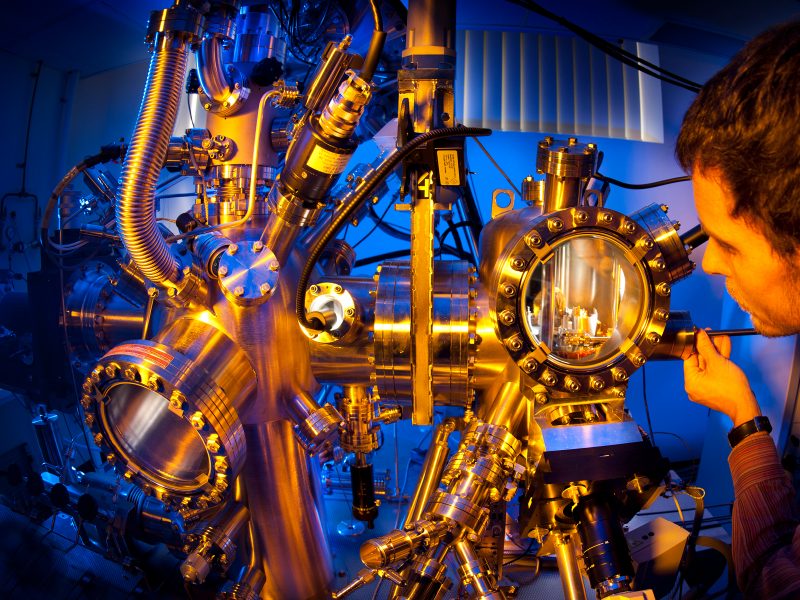
Central Analytical Research Facility (CARF) tour
Departure times: 2.30pm and 3.30pm
Meeting point: A Block, QUT Gardens Point campus (coordinating shuttle bus transport provided from QUT Kelvin Grove, with an escort to the meeting point)
Length of tour: 45 mins + 15 min Q&A (total: 60 mins)
Group size: 12 people
Guide: Professor Charlotte Allen
QUT’s Central Analytical Research Facility (CARF) provides specialist equipment and expert scientists to help researchers and industry carry out analytical research. CARF’s state-of-the-art equipment and expert technologists offer transdisciplinary analytical support, including sample preparation, data collection and interpretation of results.
Commercial in-confidence projects with sensitive IP can rest assured that their secrets will be safe at CARF, with strict protocols in place to ensure that all samples and information are secure.
CARF’s laboratories and equipment are spread across QUT campuses, with the main node located in the Science and Engineering Centre at Gardens Point campus. The expertly guided tour will take in an array of CARF facilities.
Note that as the labs will be observed via viewing windows, no special protective clothing or shoes are required on this tour.
Find out more about CARF here.
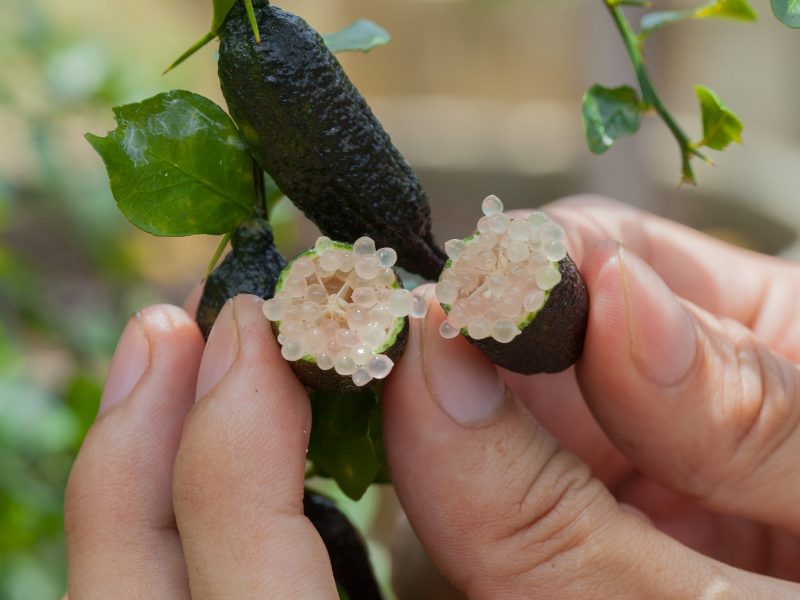
Jagum Barrambin Indigenous Garden tour
Departure time: 2pm and 3.30pm
Departure point: Kelvin Grove State College main entrance (map and directions from QUT Kelvin Grove provided on registration)
Length of tour: 90 mins
Group size: 20 people
Guides: Chris Fullon from Australian Urban Growers, and an industry partner from QUT’s Centre for Agriculture and the Bioeconomy (CAB)
Note: Mobility required (stairs), BYO sunhat, sunscreen, water, insect repellent; wear weather-suitable clothing and walking shoes.
Jagum Barrambin Indigenous Garden, the work of the Kelvin Grove State College’s Environmental Committee in conjunction with QUT’s Centre for Agriculture and Biocommodities (CAB), has the Aboriginal name Jagum Barrambin, meaning ‘a garden in the windy place’.
Students, parents, teachers, staff and community members have spent numerous hours
working in the garden to make it the glorious and fascinating space that exists today.
The garden is dotted with information plaques that display the names and Indigenous uses of each species therein – from bush tucker ingredients to medicines to fishing tools. Its centrepiece is a beehive, symbolising the significant role played by native bees and honey throughout First Nations history.
“It is hoped that all who enter Jagum Barrambin will enjoy the tranquil space and learn more
about the ingenuity of Aboriginal Australians,” says Kelvin Grove State College teacher, Environmental Committee coordinator and Indigenous garden enthusiast Lynn Lancaster.
“As a teacher, I feel that my students and I are learning about Indigenous culture in an authentic and respectful way.”
Two guides will lead the tour of Jagum Barrambin.
